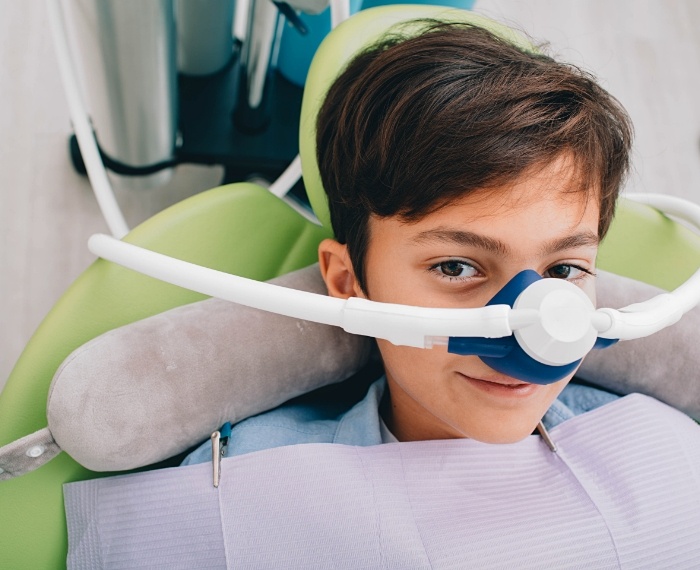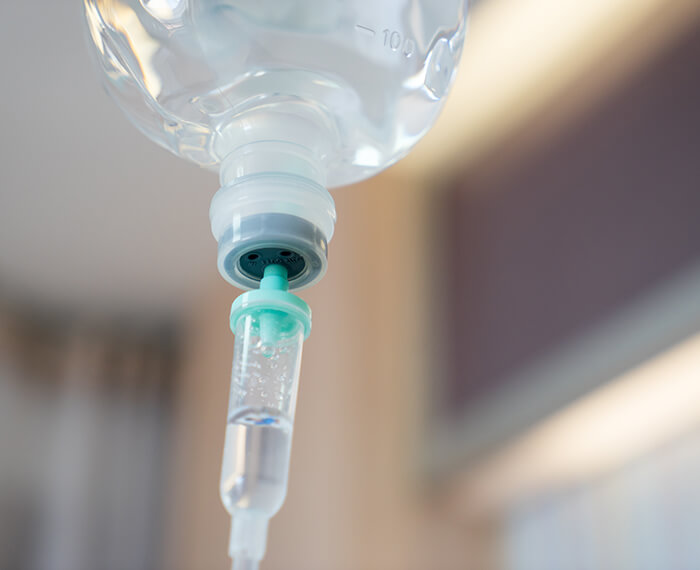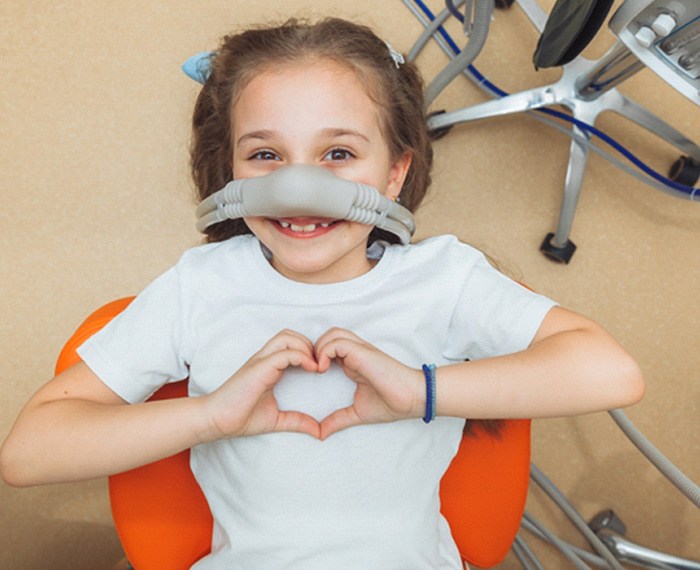Sedation Dentistry for Kids – Danville, CA
Keeping Your Child Calm and Comfortable
Visiting the dentist can sometimes be stressful for young children. Different studies have found that 1 in 10 children have some form of anxiety before their dental appointments. We want your child’s early dental experiences to be positive, so to help soothe their fears, we offer many different types of sedation. When you call Main Street Pediatric Dentistry & Orthodontics of Danville for an appointment, don’t forget to ask which of the options for sedation dentistry for kids in our Danville, CA dental office might be best for your child.
Why Choose Main Street Pediatric Dentistry & Orthodontics of Danville for Sedation Dentistry for Kids?
- Relaxing IV Sedation Available
- Dental Insurance Welcome & Financing Available
- Family-Community Dental Office
Nitrous Oxide Sedation

If your child has a hard time getting the dental care they need due to anxiety, a fear of needles, or something in between, then don’t hesitate to talk to our team about nitrous oxide sedation. Commonly known as laughing gas, this mild sedative can help patients of all ages – including children – get the preventive and restorative treatments they need and the calm, positive experience they deserve. Want to learn more? Give our team a call or read on!
Who Is a Good Candidate for Nitrous Oxide?
Nitrous oxide has been thoroughly tested and is safe for the large majority of patients. Typically, it’s recommended for children who have milder dental fears or simply have trouble sitting still in the dental chair, but it has additional benefits, such as allowing more dental work to be completed in a single visit. Of course, before confirming if your child is a candidate, we will need to learn more about them, like any allergies they have and the medications they are taking (if there are any).
How Does Nitrous Oxide Work?
Two of the biggest perks of nitrous oxide sedation for children are that it’s easy to administer and fast-acting. Once your child is comfortably sitting in the treatment chair, they’ll breathe in the sedative mixed with oxygen through a small nasal mask. This colorless, odorless gas will keep them in a euphoric mood where they remain calm and comfortable throughout their entire visit. In fact, it’s common for patients to be so relaxed that they doze off!
Aftercare for Nitrous Oxide
Once we’ve completed your child’s treatment, we will switch off the nitrous oxide and remove the nasal mask. Within minutes, the effects will begin to dissipate, and not long after they will feel back to normal again! As a result, you’ll be able to take your child right back to school (or whatever else they have planned) after their appointment.
Note: we will give you aftercare instructions specific to the treatment your child received, such as rinsing with warm saltwater periodically to prevent infection or using a cold compress for 10 minutes at a time to alleviate inflammation.
IV Dental Sedation

Severe dental fears and lengthy treatments call for stronger forms of sedation. Our team is trained to use IV sedation to keep your child in a highly relaxed state throughout their visit. They likely won’t remember anything about the procedure afterward, which can help them avoid any memories that might contribute to dental phobia. It will take a while for the effects to wear off, though, so plan on bringing your child home to rest for at least 24 hours.
General Anesthesia

Nitrous oxide sedation and IV sedation only help your child relax; they don’t put them to sleep. General anesthesia, on the other hand, is used to put patients in a sleep-like state. We only recommend general anesthesia in certain procedures, such as for patients with a dental phobia that is so severe it can make even a regular dental checkup challenging. This may also be a good option if nitrous oxide sedation has failed.
Kids’ Sedation Dentistry FAQs

When it comes to your child’s health, you’re bound to have any questions about what kinds of treatments they’re getting. We completely understand, which is why we’ll be happy to talk to you in great detail about what we’re doing at every step of the process.
Here are a few examples of questions we get often about sedation dentistry, especially in the context of pediatric care.
Is Sedation Dentistry Safe for Kids?
Not only is sedation dentistry safe for kids, it’s used often to help fussy children make it through all kinds of dental appointments. Nitrous oxide sedation is what’s used most often, and the dosage has the benefit of being easily adjustable throughout the procedure.
In the case of kids with severe dental anxiety, IV sedation may be necessary to help them. However, one of the nice things about sedation dentistry is that it can be a great way to show your kids that dentistry isn’t scary, and to make them less reliant on it in the long run.
What Does Sedation Feel Like?
Obviously, what your child will feel depends on the sedative that they use. Just about all of them are effective at keeping someone relaxed, but there’s a minor difference in the exact effect.
In the case of nitrous oxide sedation, patients often say that they feel “light;” there might be a little tingling in the limbs, and patients often feel giggly.
IV sedation is stronger, so it creates a different effect. Patients often feel “heavy,” and it’s common for them to even doze off during the procedure.
Are There Risks Associated with Sedation Dentistry?
Sedation dentistry is remarkably safe, but there are some risks that we’ll address before clearing your child for treatment. One of the biggest things to consider is any contraindicated medications, so we’ll be sure to talk with you about your child’s allergies and their medical history before clearing them for sedation.
Really the most common side effect is a bit of drowsiness after the treatment, and potentially some nausea in the case of some of the stronger sedatives. Just be prepared for that and both you and your child should be in good condition.
Can Sedatives Make You Feel Sick?
In the case of nitrous oxide, nausea is exceedingly rare. The chances increase the longer that the sedative is sustained, but in any case it’s unlikely.
IV sedation is stronger, so it entails a greater risk of nausea after the treatment. If your child is unusually prone to nausea, you should talk to us about that beforehand so that we can give your child an anti-nausea drug.
